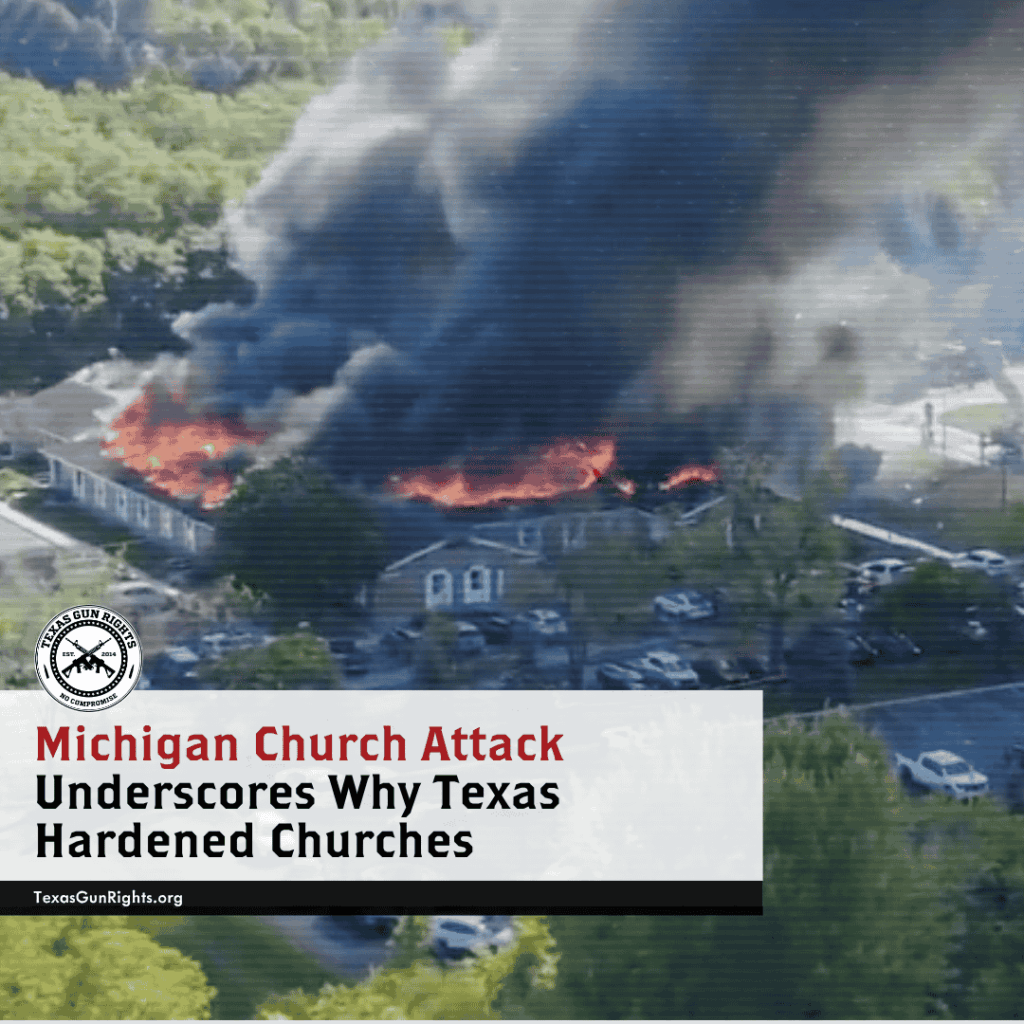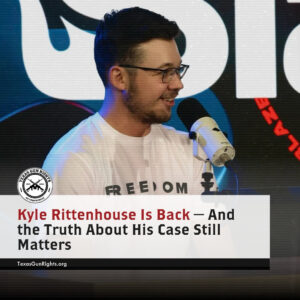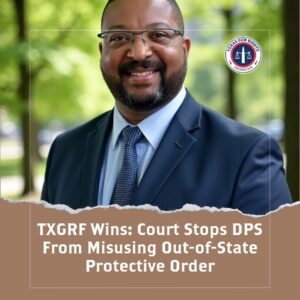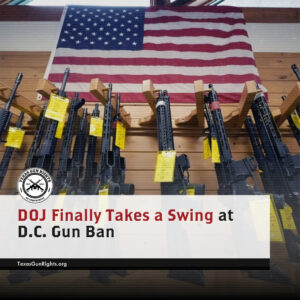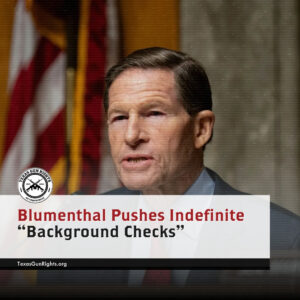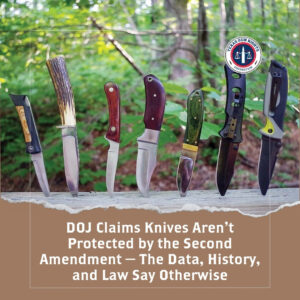The deadly attack on a Mormon church in Grand Blanc Township, Michigan, left four congregants dead and others wounded after a Marine veteran rammed his truck into the building, opened fire, and set it ablaze.
Authorities are still searching for a motive, but the reality is undeniable: the victims were unarmed, vulnerable, and targeted in what should have been a sanctuary of peace.
Reports indicate there was no armed security presence inside the chapel when the attack began, and police only engaged the gunman after arriving on scene.
That should come as no surprise—the Church of Jesus Christ of Latter-day Saints maintains a global policy barring firearms in its meetinghouses, except for active law enforcement officers.
Texas Took a Different Path in 2017
In Texas, lawmakers acted years ago to make sure churches would not remain soft targets.
In 2017, then–State Representative Matt Rinaldi—who later briefly served on the board of Texas Gun Rights—spearheaded House Bill 421, removing burdensome private-security licensing requirements for churches.
Before HB 421, small congregations were forced to either hire costly licensed security firms or remain defenseless. Most could not afford the former, leaving their members sitting ducks.HB 421 changed everything by allowing unpaid volunteer congregants to provide church security without having to navigate the state’s private security bureaucracy.
This reform meant deacons, ushers, and other members of the flock could step up to protect their own.
Real-World Proof in White Settlement
The importance of HB 421 became crystal clear in December 2019, when a gunman opened fire inside West Freeway Church of Christ in White Settlement, Texas.
The attacker killed two people before volunteer security member Jack Wilson drew his handgun and neutralized the threat in just six seconds.
That church security team existed because HB 421 made it legal.
Texas Gun Rights President Chris McNutt pointed to that case as proof of concept: “The White Settlement attack showed the wisdom of empowering congregants to protect their flock. Without HB 421, that church might have faced dozens of casualties before police could respond. Instead, a law-abiding citizen stopped evil in its tracks.”
Expanding Protections With Civil Immunity
Lawmakers built on Rinaldi’s 2017 reform by passing Senate Bill 694 in 2023, which grants civil immunity to churches and their security personnel for acts committed in the course of providing protection.
“SB 694 gives churches the peace of mind that they won’t be sued into oblivion for defending themselves and others” McNutt said.
That same year, HB 1133 further clarified the framework for volunteer church patrols, reinforcing that congregations have the right to organize their own security without government interference.
Lakewood Shows the Culture Shift
In February 2024, a shooter opened fire at Lakewood Church in Houston, only to be stopped within minutes by two armed, off-duty officers serving as church security.
While Lakewood used commissioned officers instead of volunteers, the incident demonstrated the broader culture shift in Texas: churches cannot be assumed to be dangerous “gun-free zones” for criminals looking to cause harm.
McNutt emphasized “The vast majority of mass shootings occur in so-called gun-free zones. That’s why Texas Gun Rights is ‘all-in’ on eliminating these soft targets wherever possible.”
Support Texas Gun Rights today and join the fight to eliminate dangerous gun-free zones wherever they exist.

